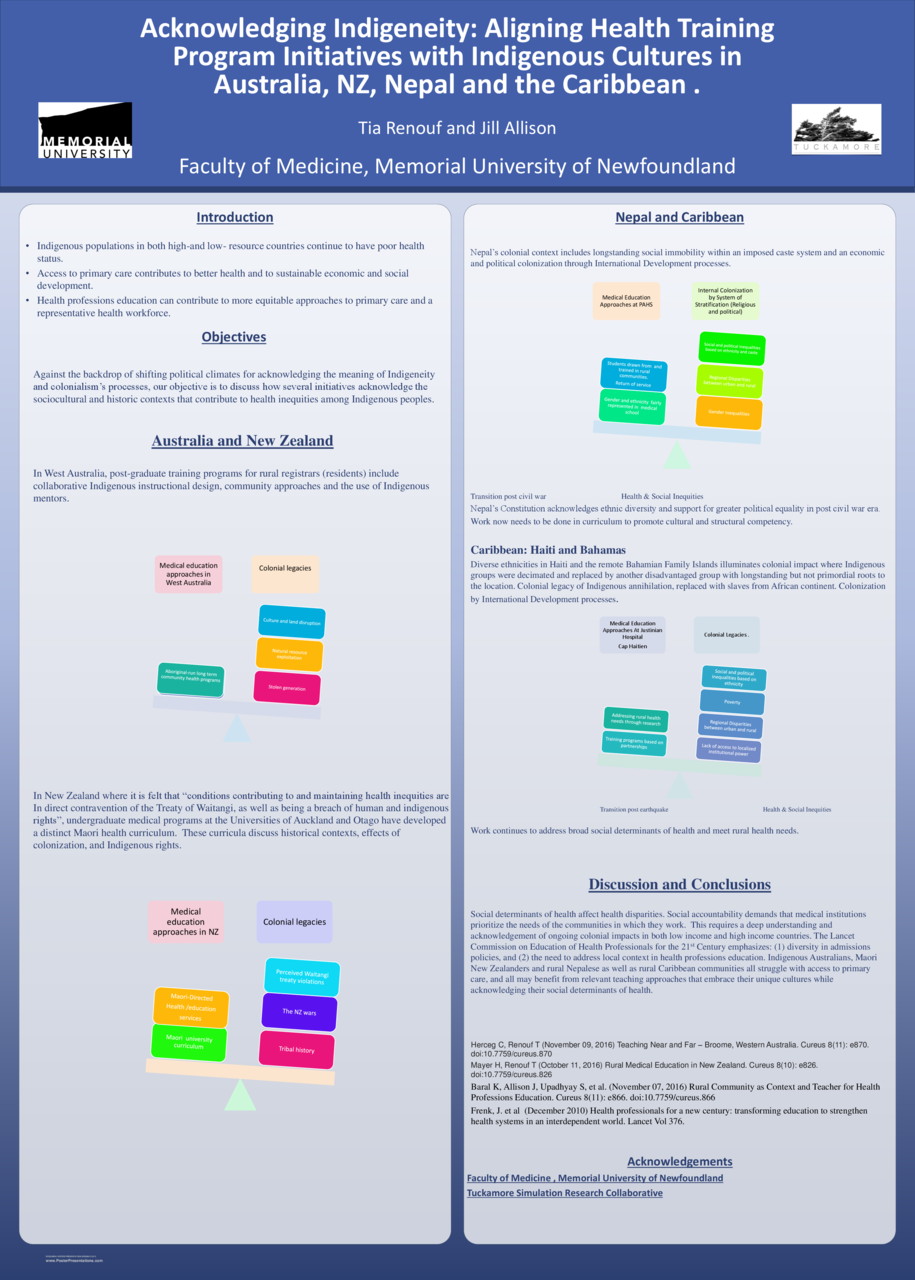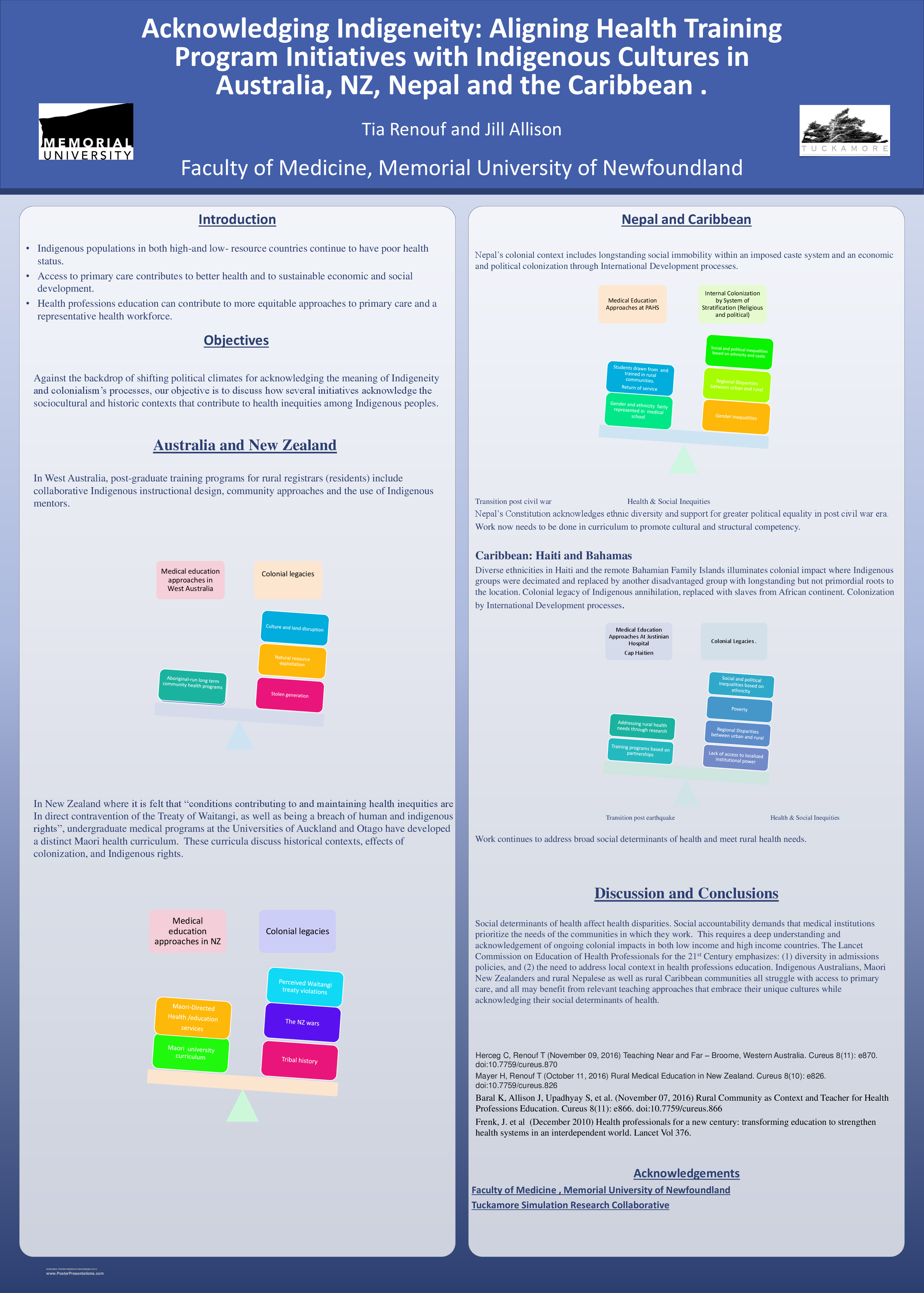Abstract
Presented at: National Aboriginal Day, 2017; Memorial University, St. John's, NL
While there have been many global achievements that have improved population health, poor health status remains conspicuous for Indigenous populations both in developed and developing nations. Good access to primary care and health literacy contributes to better health, and health is itself integral to sustainable development. Good health boosts educational and economic outcomes and is linked with economic and social development. It follows that health professional education is one factor that may aid this process. At the same time, health professional education must address the cultural issues that shape health and well being, and uptake of services.
We describe approaches to Indigenous health education in Newfoundland and Labrador, the Pilbara (West Australia), and Maori New Zealand, and rural Nepal. Teaching approaches in these regions are variable and innovative. In NL, active and potentially culturally relevant methods such as simulation have been used in Aboriginal populations. In West Australia, post-graduate training programs for rural registrars (residents) in the Pilbara include collaborative Indigenous instructional design, community approaches and the use of Indigenous mentors. In New Zealand it is felt that “conditions contributing to and maintaining health inequities are in direct contravention of the Treaty of Waitangi, as well as being a breach of human rights and indigenous rights”. Undergraduate medical programs at both the Universities of Auckland and Otago in New Zealand, have developed a distinct Maori health curriculum that includes critical awareness of historical contexts, the effects of colonization and indigenous rights.
In Nepal the concept of Indigeneity is embedded in a complex identity politics around caste and ethnicity that has largely obscured the distinctions among cultural groups in the most remote regions. Health provider education initiatives have begun in one medical school with a social accountability mandate and efforts are made to recruit medical students from most remote communities and the most under-represented ethnicities in the country. Research in rural Nepal suggests that bringing health care providers from outside the community engenders lack of trust and little appreciation for the cultural specificities that must be incorporated into health programs.






